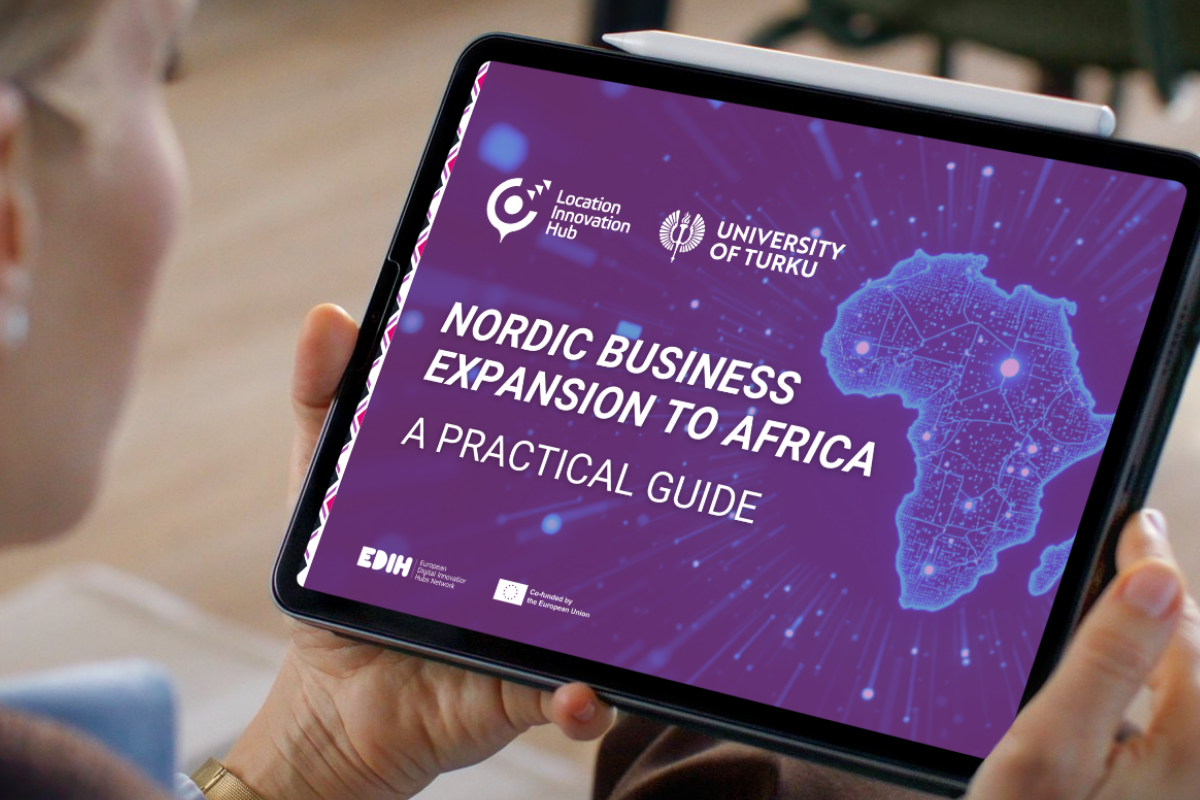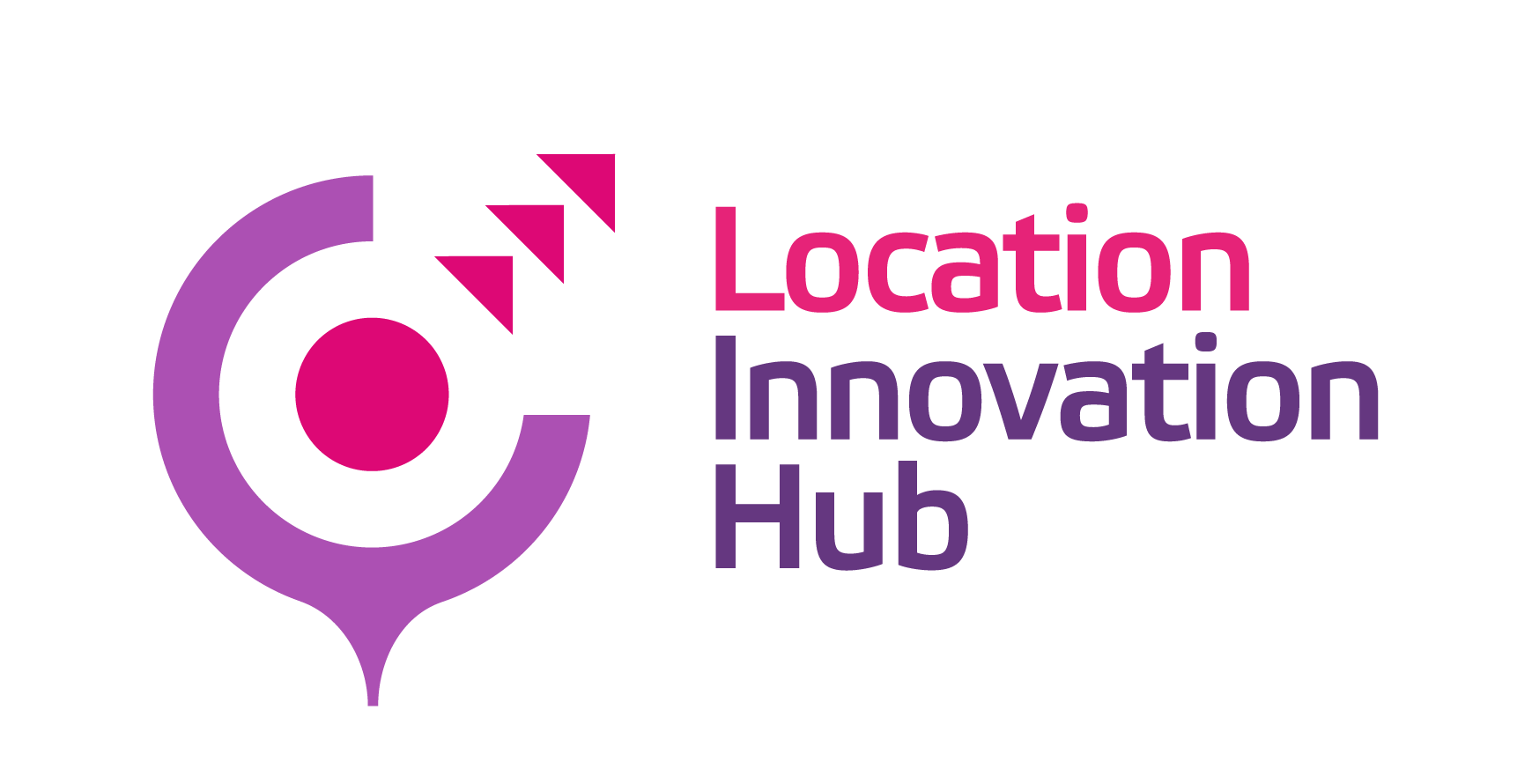
The global business environment is changing fast, creating new opportunities for Nordic companies in African markets. With Africa’s population set to double by 2050, rapid urbanisation, and widespread adoption of digital technologies, now is the time to explore these growth possibilities.
Discover tools for unlocking growth in Africa – download Nordic Business Expansion: A Practical Guide and watch our webinar recordings to get concrete insights and actionable advice.
Nordic Business Expansion to Africa: A Practical Guide
This guide offers practical advice and insights for Nordic SMEs and startups seeking to understand and take advantage of African markets. It provides practical guidance on topics such as:
- how to find the right local partners and build trust,
- what technology and business opportunities exist across Africa,
- how to navigate funding mechanisms, regulations, and data security, and
- how to plan a successful market entry, from risk management to a step-by-step checklist.

Get your free guide by filling in your contact details
After submitting the form, the guide will open in your browser. Remember to save the file to your device.
Your contact details will be received by the Location Innovation Hub. We may get in touch regarding the guide or related topics, but you will not receive spam from us.
Explore insights from our expert-led webinar series on emerging markets in Africa
The Unlocking Growth in Africa webinar series brought together experts, innovators, and business leaders during spring 2025 to spotlight the transformative role of geospatial and technology innovations in Sub-Saharan Africa. As the region experiences rapid growth in sectors like agriculture, urban development, disaster resilience, and climate adaptation, it presents a compelling opportunity for Nordic SMEs to engage meaningfully with emerging markets.

Session 1
Jumanne Mtambalike, Sahara Ventures: Geospatial Opportunities – Navigating Collaboration Between Europe and Africa
- Recording: https://dreambroker.com/channel/ss0d1ec1/mllzy3is (1 h 7 min)
Session highlights
- Meet the maverick: Get to know Jumanne Mtambalike — the Tanzanian ecosystem-builder behind Sahara Sparks and Silicon Dar, whose personal journey sets an upbeat tone for the session.
- Africa’s coming mega-cities: Hear why Dar es Salaam is racing toward 10 million residents and why that makes geospatial data mission-critical.
- A US $180 billion wave: See how the continent’s fast-growing internet economy is opening doors for location tech, logistics and fintech.
- The “missing data marketplace” dilemma: Find out why heaps of geolocation data exist—but rarely reach urban planners—and what needs to change.
- A stadium full of job-seekers: One photo of 13 000 graduates vying for 70 posts spotlights the talent gap—and the chance to train youth in geo-AI.
- Land → learn → pilot → pitch: Jumanne’s simple playbook helps foreign SMEs prove value before selling into African markets.
- Skip the cold-calls: Chambers of commerce, EU business groups and local innovation hubs open tender doors far faster than ministries do.
- Classic rookie mistakes: Discover why “pitching to the government first” and ignoring local partners can sink even brilliant tech.
- Sneak peek at new intel: Stay to the finale for an upcoming market-insights report and an open invite to collaborate.

Session 2
Edward Anderson, World Bank: Geospatial Tech Innovations and Opportunities – Climate and Disaster Risk Management in Sub-Saharan Africa
Alex Chunet, European Space Agency: ESA Earth Observation in Africa
- Recording: https://dreambroker.com/channel/ss0d1ec1/i2xzlkyk (1 h 15 min)
Session highlights:
- ESA’s €12M Africa strategy: Learn from Alex Chunet about space partnerships, funding, and how to plug into tenders and innovation calls.
- How satellite imagery + local data equals game-changing insights: See how combining Earth observation with local knowledge is creating real impact in African cities.
- Drones, drains & disaster response: Edward Anderson shares how low-cost tech is driving smarter urban planning across the continent.
- From rooftops to rice fields: Discover how open satellite data is helping cities map land use, plan infrastructure, and even improve crop monitoring.
- Jobs, not just data: Learn why co-creating with local youth, drone pilots, and students is key to scaling digital tools that stick.
- From pilot to policy: Explore how the World Bank and ESA align to move tech from test runs to lasting institutional change.
- Big cities, small satellites: Why cubesats, open data, and capacity-building are at the heart of ESA’s new push for local ownership and sustainability.

Session 3
Pierre Jallow, Remode: Entering Africa’s Markets – Challenges, Opportunities, and Strategies for Success
- Recording: https://dreambroker.com/channel/ss0d1ec1/taz070yf (1 h 7 min)
Session highlights:
- From Gambia to Finland: Pierre’s unique perspective as a proud African and proud Finn frames a powerful discussion on how to build trust across cultures.
- Self-made ecosystems: Why many African startups thrive without relying on the government—and how that changes the game for foreign companies.
- The “BB to B” approach: Learn how Remode facilitates European companies’ growth in Africa by leveraging business-to-business collaboration instead of solo ventures.
- Growth fueled by youth: With population booming, urbanization accelerating, and internet costs dropping, the next wave of African innovation is already here.
- Why unicorns are faster in Africa: Discover how fintech, logistics, and mobile-first models are driving billion-dollar valuations in record time.
- Corruption, myths, and market reality: A frank conversation on what ethics, risk, and success look like on the ground.
- Co-create or miss out: Why top consultants are urging Nordic firms to stop exporting and start co-creating with African partners.
- Local insight beats big data: See why knowing the neighborhood and not just the market, is crucial to effective tech deployment.

Session 4
Takura Matswetu, Business Helsinki: Situational Awareness & The Practicalities of Doing Business in Southern Africa
Kiira Kärkkäinen, Business Finland: Developing Markets Platform – Towards Sustainable and Competitive Innovations with a Complementary Funding Model
- Recording: https://dreambroker.com/channel/ss0d1ec1/tom3kjcg (1 h 10 min)
Session highlights:
- Read the room: Why understanding legal traditions, local culture, and power dynamics is just as important as the product you’re offering.
- Gig work is real work: See how the informal sector and the gig economy are driving the future of employment and digital services in Southern Africa.
- DIY development: From boreholes to broadband—how communities are using mobile money, solar tech, and homegrown apps to leapfrog infrastructure gaps.
- Why “localize” beats “launch”: Learn why the most successful innovations are adapted to context, not copied from the North.
- SADC by the numbers: Explore the business case behind this 16-nation market with 400 million people, strong urbanization, and rising digital demand.
- Diaspora provides a billion-dollar bridge: Discover how Africa’s global diaspora plays a key role as investors, market connectors, and cultural interpreters.
- Agriculture reimagined: From grain logistics to drone-powered smart farming, find out where the real agtech opportunities are.
- Finland’s two-track funding model: Hear how Business Finland and the Ministry for Foreign Affairs now co-fund innovation in developing markets and how your company can benefit.

Session 5
Ephraim Danford, Techno Environment Investment Company: How Geospatial Data & Drones are Redefining Urban Development In Africa
Tuomo Kauranne, Arbonaut: Business in Africa – Arbonaut Examples
- Recording: https://dreambroker.com/channel/ss0d1ec1/9adld526 (1 h 21 min)
Session highlights:
- From passion to policy: Follow the rise of Tanzania’s drone ecosystem from grassroots beginnings to national certification and regulation.
- Cities from above: See how drones are helping urban planners in Mwanza make smarter decisions with high-resolution, real-time data.
- Collaboration in action: Discover how local firms and global tech companies are teaming up to deliver scalable, context-aware solutions.
- Beyond the satellite: Learn why drones are filling critical gaps in geospatial data offering flexibility, affordability, and precision.
- AI in the workflow: Get a glimpse of how artificial intelligence is transforming drone data into actionable insights for city planning and beyond.
- Sector-spanning potential: From agriculture to conservation, logistics to mining – explore the untapped opportunities for drone tech in the Global South.
- Grounded in local knowledge: Hear why participatory approaches and local expertise are key to sustainable tech adoption.
- Looking ahead: Stay for reflections on scaling innovation, building resilient partnerships, and why the Global South is a key player in shaping global tech futures.
